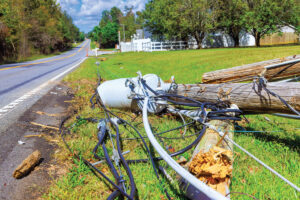 The sweltering heat of summer encourages many to choose to cool off in swimming pools. Although pools can be both refreshing and fun, it is important to make sure all electrical safety precautions have been taken before jumping into a pool.
The sweltering heat of summer encourages many to choose to cool off in swimming pools. Although pools can be both refreshing and fun, it is important to make sure all electrical safety precautions have been taken before jumping into a pool.
Homeowners should make sure that the National Electric Code (NEC) has been followed for wiring and that ground fault circuit interrupters (GFCIs) are properly installed on equipment in areas around pools, spas and hot tubs.
At 10 years old, Caitlyn Mackenzie was killed by household current when she touched a lamp while still damp after swimming in a pool. Her life may have been spared if the outdoor outlet that the lamp was connected to was equipped with a GFCI.
Water and electricity do not go well together, and GFCIs were made to help prevent electrical accidents when the two mix. A GFCI monitors the flow of electricity in a circuit. If there is any irregularity, the GFCI will shut off the electric current. If GFCIs are not already installed in your home or near your pool, contact a qualified electrician to install them. It is recommended that you test your GFCIs on a monthly basis to make sure that they do not need to be replaced.
Safe Electricity advises swimmers to use battery-powered appliances and electronics around pools instead of connecting them to an outlet. Additionally, pool owners should have an emergency plan posted in plain view in the pool area with instructions on how to assist someone who is suffering from an electrical shock.
If someone has been in contact with electricity, do not touch the person. He or she may still be in contact with the source and may be energized. If the person is in the pool, do not get in the water. Make sure to call 911 and the electric utility immediately.

If it can be done safely, turn off the electricity at the source (the circuit breaker or breaker box). Otherwise, wait for the help of emergency responders. Once the source of electricity is off, then it is okay to check for vital signs. However, do not move a person with an electrical injury unless he or she is in immediate danger.
Anyone who has come into contact with electricity should see a doctor to check for internal injuries, even if there are no obvious signs or symptoms.
For more information on electrical safety around water, go to SafeElectricity.org.





